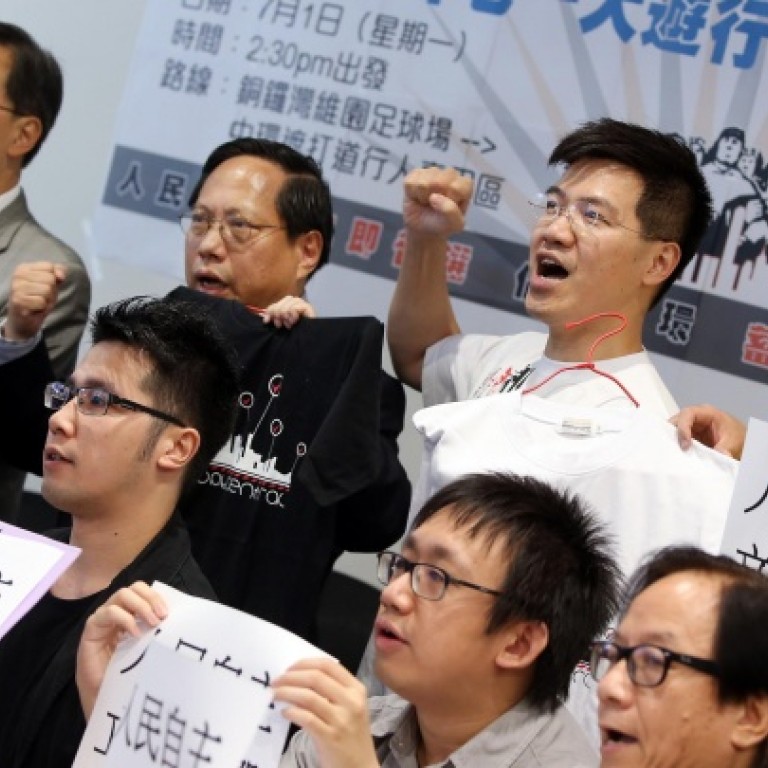
Democracy march to end with rally at Central
An annual pro-democracy march on July 1 will end at Chater Road in Central to give a taste of what Occupy Central would be like at the same time next year when at least 10,000 people are expected to block roads there.

Workers and students, representing key participants in the dockers' 40-day strike which ended earlier this month, will lead the march to call for Chief Executive Leung Chun-ying to step down, and to end "exploitations, monopolies and collusion" among businesses.
A year ago, dissatisfaction with the government attracted what the organisers said was a crowd of 400,000 people to the march on the day Leung took office. Police said the turnout peaked at 63,000.
The Civil Human Rights Front declined to estimate whether the turnout this time would exceed last year's, but it hopes it would be enough to oust the controversy-plagued chief executive.
"We are optimistic about the turnout," Jackie Hung Ling-yu, convenor of the front, said. "[Since July 1, 2012,] we have seen more scandals surrounding, and protests targeting Leung.
"They showed that he shouldn't stay in the administration and we hope that the rally on July 1 will prompt him to step down," she said.
At the end of the march, the organisers will invite speakers such as Occupy Central proponent Dr Benny Tai Yiu-ting to explain his ideas and call for universal suffrage.
But Hung said the gathering was not a rehearsal or part of Tai's civil disobedience plan.
Ten years ago a historic march attracted 500,000 Hongkongers who demanded the then chief executive Tung Chee-hwa's resignation, and that of two of his ministers. It was regarded as a crucial factor in Tung's eventual resignation two years later.

